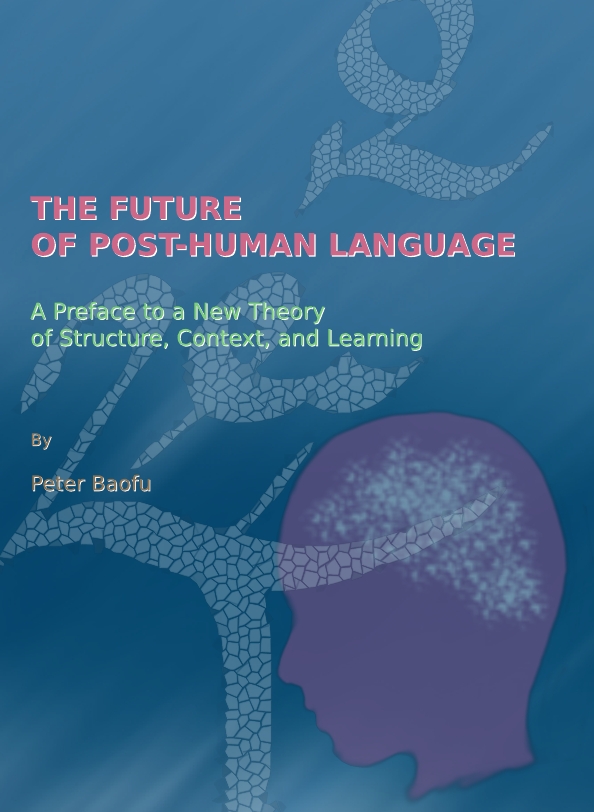The Future of Post-Human Language: A Preface to a New Theory of Structure, Context, and Learning
To what extent is there really a universal structure, whether innate or not, of language for learning? Or conversely, is language learning mainly context-based? And, in the end, does the very nature of language delimit our mental world—such that “the limits of my language mean the limits of my world” or, in a different parlance, constitute “the prison house of language”?
Contrary to the conventional wisdom held by many in history, all these seemingly plausible views are highly misleading, to the extent that something vital is missing in the conventional debate, such that the nature of learning has yet to be more comprehensively and systematically understood.
This is not to say, however, that the literature in the study of language (and other related fields) hitherto existing in history has been much ado about nothing. In fact, much can be learned from different theoretical approaches in the literature.
The virtue of this book is to provide an alternative (better) way to understand the nature of learning, especially (though not exclusively) in relation to language—which, while incorporating the different views in the literature, transcends them all in the end, with the use of language and also beyond it.
This inquiry may sound academic, but it has enormous implications not just for the narrow concern with the nature of language, but also, more importantly, for the larger concern with the nature of thinking, feeling, and doing in learning, both with the use of language and beyond it.
If true, this seminal work will fundamentally change the way that we think, not only about the nature of language, in a small sense— but also about the nature of learning, with the use of language and also beyond it, from the combined perspectives of the mind, nature, society, and culture, for the human future and what I originally called its “post-human” fate, in a broad sense.
Dr. Peter Baofu is the author of 23 books (with some more to appear in 2009), which proposes 35 new theories on the mind, nature, society, and culture—ranging from the social sciences through the humanities and the formal sciences to the natural sciences.
He is known for his pioneering works on “post-humanity,” “comprehensive creative thinking,” “contingent urban planning,” “post-capitalism,” “selective geometry,” “post-democracy,” “contrastive advantages,” “ambivalent technology,” “authoritarian liberal democracy,” “the post-post-Cold-War era,” “post-civilization,” “transformative aesthetic experience,” “synthetic information architecture,” “contrastive mathematical logic,” “dialectic complexity,” “after-postmodernity,” “sophisticated methodological holism,” “post-human space-time,” “existential dialectics,” “unfolding unconsciousness,” “floating consciousness,” “hyper-spatial consciousness,” and so on.
Dr. Baofu earned an entry to the list of “prominent and emerging writers” in Contemporary Authors (2005) and another honorary entry in The Writers Directory (2007)—and was also interviewed on television and in newspapers about his original ideas. He was a U.S. Fulbright Scholar in the Far East. He had taught as a professor at different universities in Western Europe, the Caucasus, the Middle East, the Balkans, Central Asia, and North America. He finished more than 5 academic degrees, including a Ph.D. from M.I.T., and was a summa cum laude graduate.
There are currently no reviews for this title. Please do revisit this page again to see if some have been added.
Buy This Book























